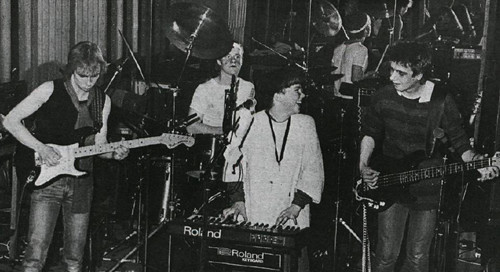continental drift 5/3/23: iceland
 Today we are making the trek to Iceland. There will be baseball during drift next week, meaning this is the last episode of continental drift for quite some time. I’m talking about July 19th. I graduate this weekend, and I’d just like to say that if this is my last episode, it’s been a great run. Reviving this show has been truly a pleasure, and I’ve learned so much. Ethnomusicology is so important! (Fear not, Continental Drift will be revived by my friend and collaborator, Carolyne). Find the playlist for this episode here.
Today we are making the trek to Iceland. There will be baseball during drift next week, meaning this is the last episode of continental drift for quite some time. I’m talking about July 19th. I graduate this weekend, and I’d just like to say that if this is my last episode, it’s been a great run. Reviving this show has been truly a pleasure, and I’ve learned so much. Ethnomusicology is so important! (Fear not, Continental Drift will be revived by my friend and collaborator, Carolyne). Find the playlist for this episode here.
Iceland is a dual ocean Nordic island country spanning both the North Atlantic Ocean and the Arctic Ocean. It is the most sparsely populated country in Europe, with less than 10 people per square mile. In fact, there are only 8 other countries in the world that are more sparse (can you guess #1? It is Greenland). Their official language is Icelandic, a Germanic language most similar to Norwegian.
The idea that Iceland was named to discourage settlement on verdant land is a myth. In fact, it was originally named Snæland, or snow land, because it was snowing when Norse settlers first arrived, and then renamed Iceland after viking Flóki Vilgerðarson arrived.

Young Bjork
Iceland’s most famous musician is probably Björk. Björk Guðmundsdóttir’s career started when she was just 11 when a recording of her singing at a school recital was broadcast on RUV, then Iceland’s only radio station. Björk has released music as recently as 2022, and is also a climate activist in Iceland. NY’s Museum of Modern Art held a retrospective exhibition dedicated to her in 2015.
Lots of literature on Icelandic music talk about the “Bjork effect.” This is essentially getting at the public perception of Icelandic music since she became internationally popular, which is one of “eccentricity.” One article said it’s as if Icelandic music says to people, “Come to Iceland. We have elves.”
I’m not going to refute the Björk effect, because I found it to be actually quite relevant.
We’re going to start with classical music. Icelandic classical music is different from other traditions, and other samples I’ve played on drift, because it is distinctly modern. Classical music was late to arrive in Iceland, only taking hold in the late 1800s/early 1900s. The innovation is still happening today, resulting in a robust contemporary classical scene. Lots of it, you will find, is very “Iceland.” I know I keep saying that, but if you don’t know what I mean already, you’re about to. The imagery is very rich.

Hafdís Bjanadótir
Classical segment:
From Beacon to Beacon // Hafdís Bjanadótir (composer, blues guitar), Nordic Affect (Icelandic chamber ensemble)
The Gospel of Mary: Gospel Text II // Hugi Guðmundsson, Aarhus Sinfonietta, Schola Cantorum Reykjavicensis, Hörður Áskelsson
Clean Teeth // Magnús Jóhann (composer, producer, keyboardist), Skúli Sverrisson
Loom – Sunrise Session II // Ólafur Arnalds (composer), Reykjavík Recording Orchestra
Post punk is not a genre I have covered extensively on drift before, but it is such a good one. Post punk emerged in the late 70s from the punk scene. It took a lot of influence from rock, but incorporated elements of funk, electronic, jazz, and even disco. A lot of post punk, like the punk that came before it, was political at heart. Bjork was in a post punk band before the Sugarcubes, Tappi Tíkarrass, which was active from 1981-1983 (post punk’s prime). They certainly weren’t the only ones in Iceland.

Björk (keys) performing with Tappi Tikarrass
Post-punk segment:
Flughoppið // Purrkur Pillnikk (“The Plane Jump”)
I Don’t Like Your Style // Baraflokkurinn (“The Bar Party”)
Autopilot // russian.girls
Þú og ég has been called “the embodiment of disco music in iceland.” HLH flokkurinn was dedicated to the 60s, though released music in the late 70s. Interesting, because I consider them to sound a lot like ABBA.
Sumargleðin was not an actual band but a group of entertainers under the direction of Ragnar Bjarnason. They were very popular among rural Icelandic people, to the extent that people planned their summer vacations with regard to when the Summer Fun Ball was nearby.
![Sumargleðin [1] (1972-86) | Glatkistan](https://hraunbaer.files.wordpress.com/2023/01/sumargledin-1980.jpg?w=300&h=215)
Sumargleðin
Í Reykjavíkurborg // Þú og ég (“In Reykjavik”)
Vertu ekki að plata mig // HLH flokkurinn (“Don’t Be Fooling Me”)
Ég fer í fríið // Sumargleðin (I’m Going on Vacation)
Modern Pop/ Indie Segment:
Stop In the Name of Love // Bang Gang
Random Haiku Generator // Sin Fang, Sóley, Örvar Smárason
